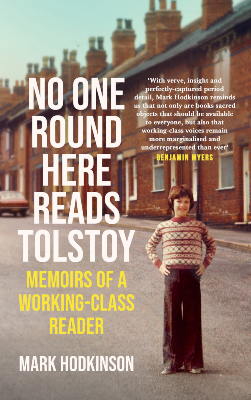The recent upheaval and turmoil within our government resulting in the resignation of Boris Johnson as Prime Minister has set in motion a clamouring leadership race, including Rishi Sunak, Liz Truss, Sajid Javid and Jeremy Hunt.
Readers should reflect that advisors pushed Johnson to resign due to perceptions of him being morally compromised, failing to apply the rules of governance and lacking personal integrity.
In the revealing, thought-provoking and entertaining The Prime Ministers We Never Had, Steve Richards examines in detail the “demands of leadership” alongside the personal qualities and competency of eleven potential prime ministers and why they failed to make it to the very top.

Pulls No Punches
The eleven candidates are Rab Butler, Roy Jenkins, Barbara Castle, Denis Healey, Neil Kinnock, Michael Heseltine, Michael Portillo, Ken Clark, David Miliband, Ed Miliband and also Jeremy Corby.
The author pulls no punches in his subjective judgements. He asserts that had Michael Heseltine won the Conservative party leadership in 1990, the course of history in the UK would have been dramatically different.
His analysis of Heseltine’s dream to be prime minister, particularly after his crucial role in bringing about Thatcher’s resignation, is hugely revealing. Despite doing all the dirty work (viewed by some as an act of bloody betrayal), many people regarded him as a leader in waiting.
However, John Major won the subsequent leadership contest and, with it, the key to Number Ten. It will be interesting to see if a contender whose actions led to the downfall of Johnson manages to win the race to become prime minister.

Beer-Loving Orator
The section on Ken Clark as a jovial, beer-loving, gifted orator highlights his inability to forsake strongly-held beliefs in pursuit of personal ambition to challenge Johnson. In contrast, Neil Kinnock faced difficulties with a disjointed dressing room with fixed mindsets.
Commentators considered he was not ready to be Prime Minister in 1992 because he had spent too much time looking inwards and addressing team consistency instead of focusing on national issues.
Steve Richards has produced a tremendous insight into why some “astute and talented politicians” never realise their dream of being Prime Minister. It is highly entertaining and relevant to the current leadership issues in the UK. Well worth reading.
Reading Skills
A significant issue facing schools and colleges is the reluctance of young people to develop reading skills.
Mark Hodkinson’s No One Round Here Reads Tolstoy takes the reader on an insightful and humorous reflection of how he developed the skills and confidence to enjoy reading, accumulate books and become more successful.
In common with the vast majority of working-class properties in the post-war period up until the 1960s, books were a scarce commodity in the home. They were only available in schools and public libraries.
Mark recounts growing up in a working-class family in Rochdale where “nobody ever read a book”. He openly highlights how he was awestruck when, at 17, he first saw books in a house while visiting the family home of a college friend.
He develops a theme of deferred gratification, which may well resonate with readers and reflects on how, at age 10, he started to collect PG Tips cards, football programmes, stamps and comics.
Interestingly some psychologists consider that these collections became comfort friends for unloved children.

Three TV Channels
In common with the current enthusiasm for technology rather than reading, he notes that in the 70s, the buzz was to watch lots of television rather than read books, even if there were only three channels!
Mark addresses the issues all book lovers face, including comments such as “you’re not going to read all those books” and “what will we do with them when you die?”.
He agrees that he has succumbed to what Americans term Bable (book accumulation beyond life expectancy).
Mark is not a book lover who reads books and then gets rid of them or passes them on to friends and admits that he has kept far too many.
He enthuses about how books such as A Kestrel for a Knave by Barry Hines changed his life. He highlights the problems many pupils faced in secondary education. English literature was based on historical characters mainly from the upper classes with no relevance to the world of life where people had to work and scrape for a living.

An Excellent Addition
The author used Hines’ novel exposing the bleakness and decay of northern England as a “frame” to highlight how defiant some kids are.
His extensive personal analysis emphasises how socially-based literature emphasised aspects of his own experience. In particular, the futility of an education system promoting a lack of self-worth and how it taught the poor to accept their lot.
Within an extensive and, on occasions, emotionally disturbing biographical and social history, Mark provokes the reader to reflect on their own experiences of reading and teachers, peers or others who extended their skills and enjoyment.
His enthusiasm and knowledge are evident throughout a stimulating discussion about a range of books linked closely to his personal social history – a history with strong links to his grandfather and enthusiasm for pop groups and football.
A critical positive throughout the text is that, as a working-class kid, the author found a pathway through books and writing to transcend what he terms “cultural and class barriers”.
Hodkinson’s detailed analysis of his ability to validate his determination and motivate himself to break away from an “intimate relationship with boredom” is inspirational.
It addresses an important issue facing many readers who require greater personal stimulation than merely watching television or communicating through technology. It will be interesting to observe whether today’s younger generation will seek mental respite from their range of electronic devices and return to reading and owning a book. This novel extends realistic views on social history and is an excellent addition to your library.
Finally, for more book reviews, click here.


